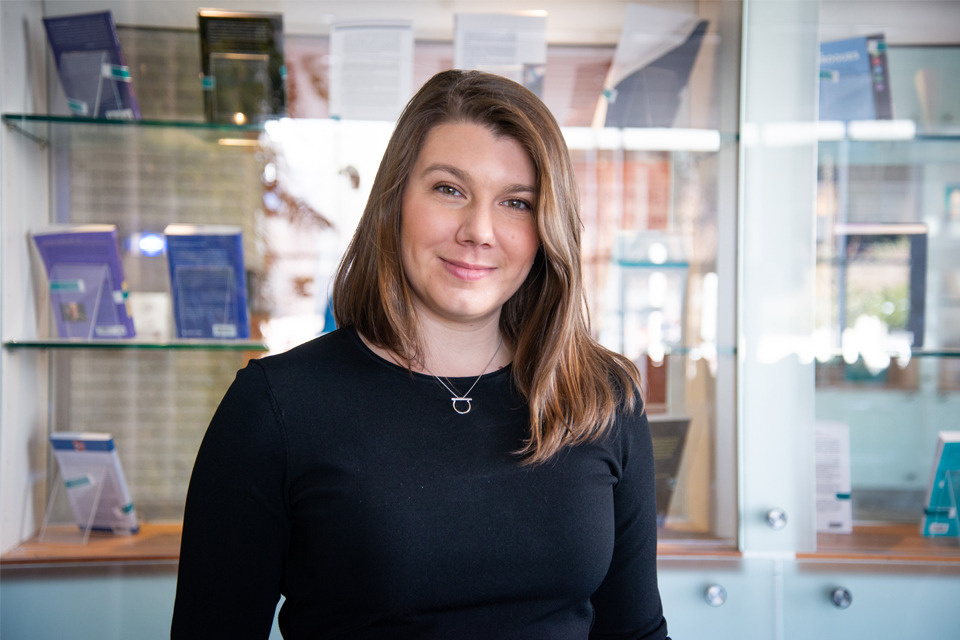by Chonglu Huang
Growing up, Dr. Susan Rogers Van Katwyk attended middle and high schools in China and the United Arab Emirates. As a kid, she even spoke basic Mandarin Chinese.
Today, she combines her passion for epidemiology with her international experience into a career developing global health policies against antimicrobial resistance — the increasing inability of antibiotics to treat bacterial infections.
“Both my parents were teachers who taught at international schools so we often lived abroad,” says Dr. Rogers Van Katwyk, recent uOttawa graduate with a PhD in epidemiology. “I thought I’d become a diplomat, but in high school I fell in love with biology and chemistry. I was always interested in science and numbers, but never quite got away from global policy in my work.”
Dr. Rogers Van Katwyk is the director of research on antimicrobial resistance at the Global Strategy Lab, a group co-led by York University epidemiologist Dr. Steven Hoffman and uOttawa’s Dr. Patrick Fafard associate professor of Public and International Affairs at the Centre for Health Law, Policy and Ethics.
On November 16, Dr. Rogers Van Katwyk was published in The Lancet as the first author of a commentary entitled “A roadmap for sustainably governing the global antimicrobial commons.” The piece was co-authored by an international team that included researchers from the University of Cambridge, the World Bank and the World Health Organization (WHO).
At the Global Strategy Lab, Dr. Rogers Van Katwyk works closely with the WHO and other international actors to develop options for international collaboration and collective action on antimicrobial resistance.
“There are three areas that countries have to act on in a coordinated way,” Dr. Rogers Van Katwyk explains. “The first is access, to make sure that everyone who needs antibiotics can have them; the second is conservation, to make sure we don’t overuse antibiotics; and the third is innovation because there have been no truly novel antibiotics created in the last 30 years.”
Dr. Rogers Van Katwyk stresses that, foremost, everyone — no matter their income or whether they live in rural or urban areas — should have access to antibiotics when needed. At the same time, a coordinated global initiative is needed to ensure that human beings don’t overuse antibiotics to the point of depleting their effectiveness against bacterial infections.
“Antibiotics are used for all kinds of life-saving treatments and medical procedures including c-sections, organ transplants and kidney dialysis to name a few,” says Dr. Rogers Van Katwyk. “Countries and health care leaders need to come together to both conserve what antibiotics we have and also innovate new drugs and alternatives.”

